The watercourses are the blue veins of the Colne Valley Regional Park, providing a lifeline for all wildlife, encouraging a diversity of aquatic and terrestrial species and giving a vital source of water, recreation and relaxation for us humans, too.
There are more than 200kms of rivers and canals and over 60 lakes, which continue to play a pivotal role in shaping the landscape, local communities and our way of life.
The Colne Valley Regional Park has five principal rivers including the Colne, Misbourne, Colne Brook, River Frays and Wraysbury River, as well as the Grand Union Canal and other water bodies. These waterways help to sustain a vital water source, as well as providing a haven for many birds and rarer wildlife species, such as water voles and kingfishers.
How are we helping?
Sadly, they face many challenges. Only 14% of rivers in England are considered to be at Good Ecological Status (within the Water Framework Directive) * so it is important to take the threats to our rivers in the Colne Valley Park very seriously. The main ones are over-abstraction, pollution, high water consumption and the widespread problem of non-native invasive species (NNIS) our ‘space invaders’ that are affecting both the health of our rivers and in some cases their very existence. Funding provided by the Heritage Lottery and other sponsors has allowed us to run several projects to help protect and enhance the rivers in The Colne Valley Park as part of The Landscape Partnership Project.
Meet Chloe, our rivers manager, or as we like to call her, our ‘river heroine’. Chloe has brought lots of energy, experience and commitment to the big challenge of protecting and enhancing our waterways. She says: “We are running a number of important projects to increase biodiversity and also improve the health of our rivers which provide a lifeline for all wildlife (humans included). One of the biggest challenges in the Colne Valley is tackling the threat from non-native invasive species which are taking over our local rivers. The main plant threats include Floating Pennywort, Himalayan Balsam, Giant Hogweed and Japanese Knotweed. Currently we are working to raise awareness of the impact of these species by holding workshops for the public, sharing information leaflets and documents as well as providing bespoke advice to landowners”. Find out more here about Floating Pennywort and how to identify it here..
Chloe Crompton our Rivers Manager
Illustration of an unhealthy river dominated with non-native invasive species, part of our education programme with communities
Illustration of an healthy river, part of our education programme with communities
Why are people keen to get involved?
“These ‘Space Invaders’ harm our rivers because they dominate large areas along riverbanks and water surfaces. They smother native species, increase riverbank erosion, reduce local biodiversity and degrade the habitat. The whole food chain is affected from the tiny invertebrates (which should be teaming in the rivers), up to native fish, birds and mammals. These invaders are such a problem because they spread so easily and quickly, and as they have no natural control agents here, they are found throughout the rivers in the park in varying degrees of severity. They are literally choking the
life out of our rivers, and I have been blown away by the support and commitment of our dedicated volunteers who are helping us tackle this destructive problem”, Chloe tells us.
Why do our rivers need our help?
Floating Pennywort dominating The River Colne in Uxbridge and volunteers helping to clear it (right).
“Our River Ranger project involves workshops, training and volunteer sessions for a team of more than 70 people who keep a close eye on the state of their local river. The team protects our rivers by completing surveys from the bank monitoring health indicators, paddling into the shallows to survey river fly species, and also getting stuck in, often wet and muddy, on practical conservation days.
River fly monitoring in the Colne Valley
“The River Rangers are literally our eyes and ears ensuring we can report quickly on any problems in a river. The information they provide is a vital source of data for key organisations such as the Environment Agency. The volunteers also take part in practical days, battling through the mud, water and vegetation to remove the worst space invaders – Floating Pennywort and Himalayan Balsam. These sessions make a dramatic difference to the health of our rivers, and are a great chance for people to learn more about the importance of their local environment. The River Rangers
are my heroes. We couldn’t tackle this threat without the help of local people getting involved and caring about the rivers. Thank you!”, says Chloe.
Chloe and the volunteers have cleared more than 2,993 metres of rivers from these ‘space Invaders’ in just over a year. They have managed to conserve an area of 13,934.5 square metres of rivers through 19 volunteer sessions and with a total of 124 volunteers. This is a great achievement and we are all very grateful for people’s support!
Floating Pennywort removal volunteer day on The River Colne at Willowbank in New Denham.
Himalayan Balsam removal volunteer day along the River Colne in Denham.
Meet one of our first River Rangers
Anthony from Ruislip became a river ranger last year, and tells us more about why he wanted to get involved: “I’ve always been interested in wildlife and enjoyed being outdoors – in rivers if possible! “Since becoming a stay-at-home dad, I’ve become increasingly concerned with the environment, and had been looking for ways to switch my career path and make a difference. Volunteering has enabled me to make a tangible impact, whilst learning and meeting people that share the same passion. And as a result, it opened the opportunity to work with The Colne Valley Park. I would encourage anyone to get involved with the volunteering sessions; they give your brain and body a good workout, in some beautiful places. And they give you a great sense of purpose and achievement.”
Follow us on social media or check our website regularly to keep in touch with developments across the Park. Please note all volunteer sessions have control measures in place to ensure everyone’s safety.
If you would like to find out more information about the challenges facing our rivers and how you can help, read more here on article about caring for our rivers…
*Source: www.theRiversTrust.org 2019
Anthony, removing Floating Pennywort on the River Colne, Harmondsworth Moor.
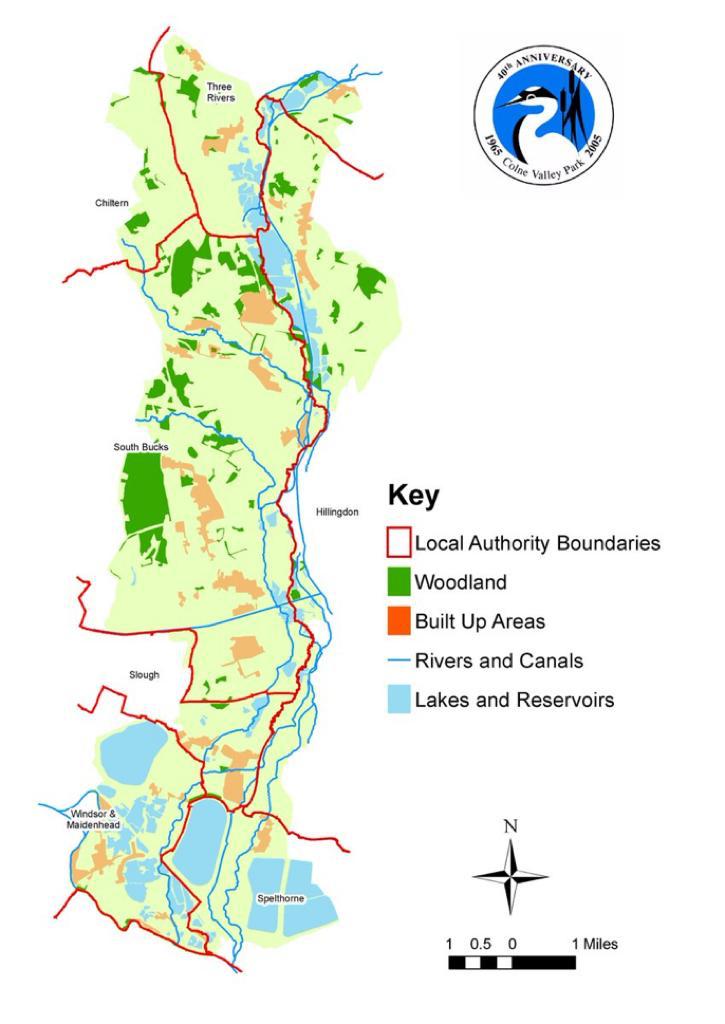
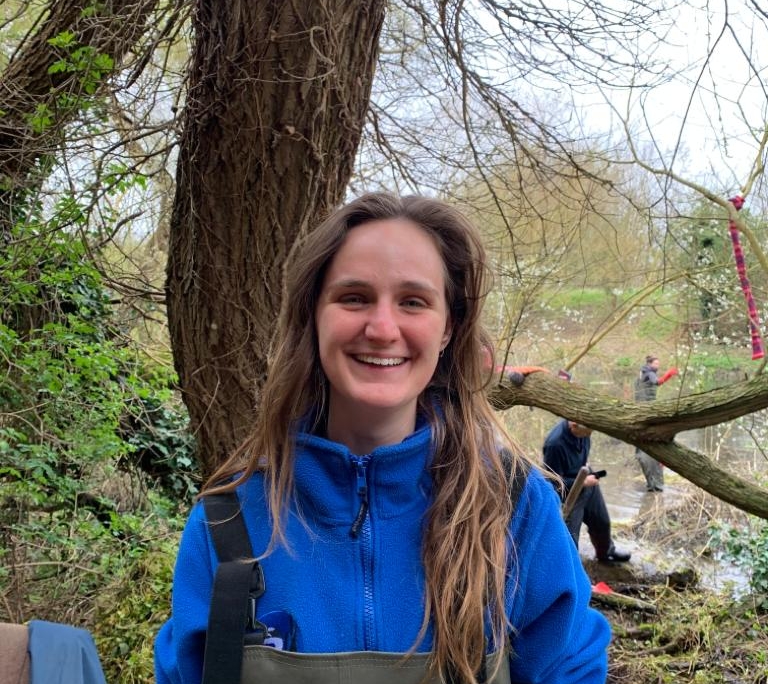
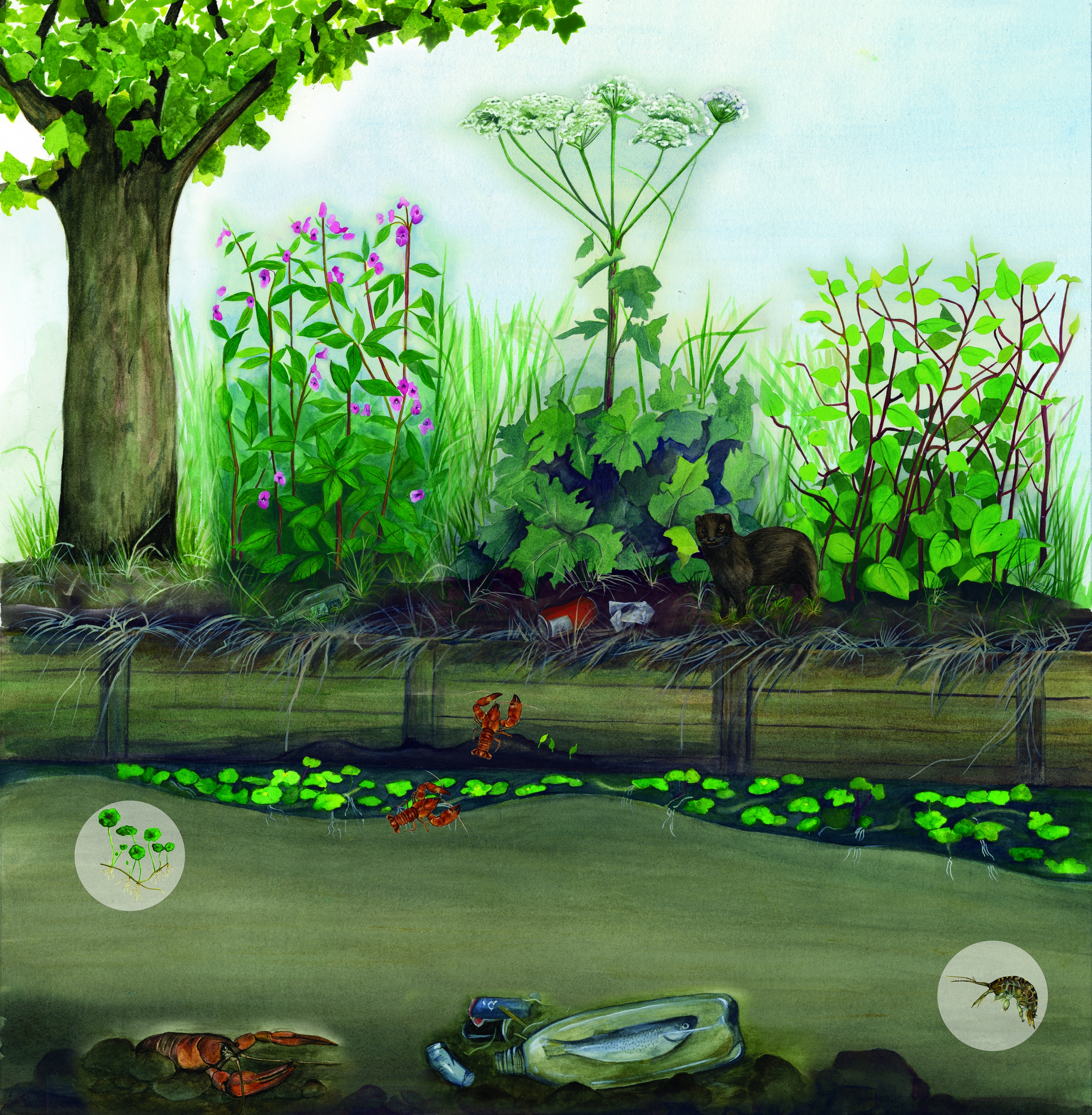
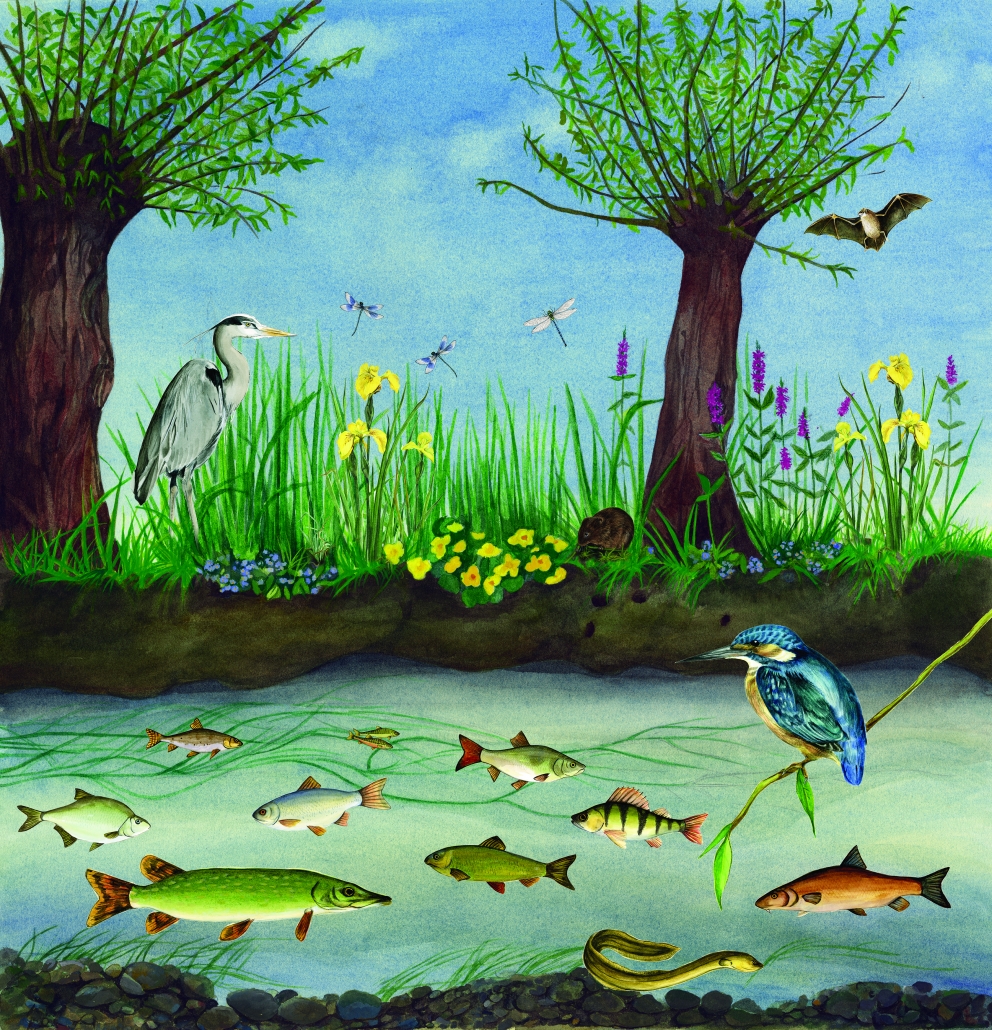
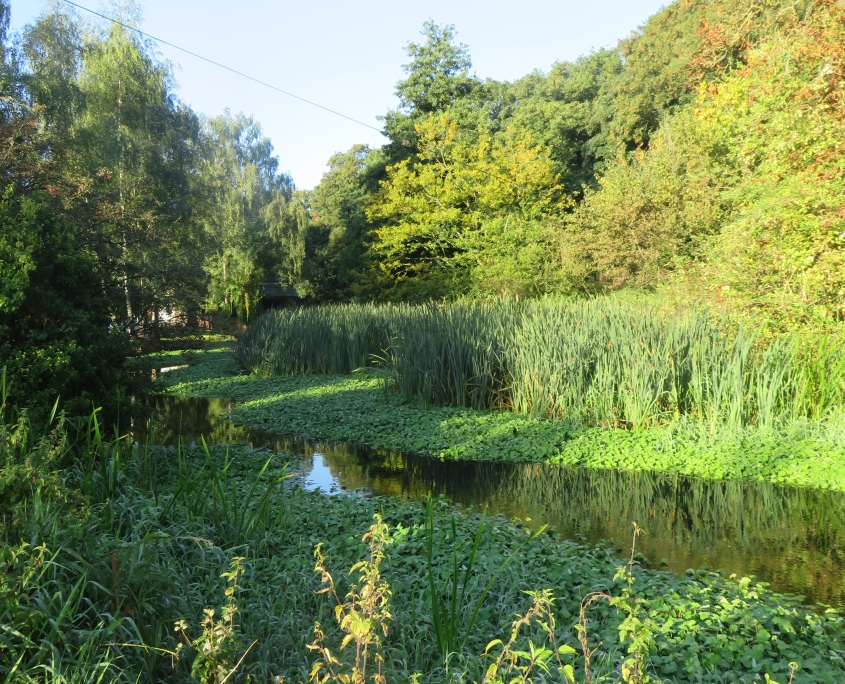
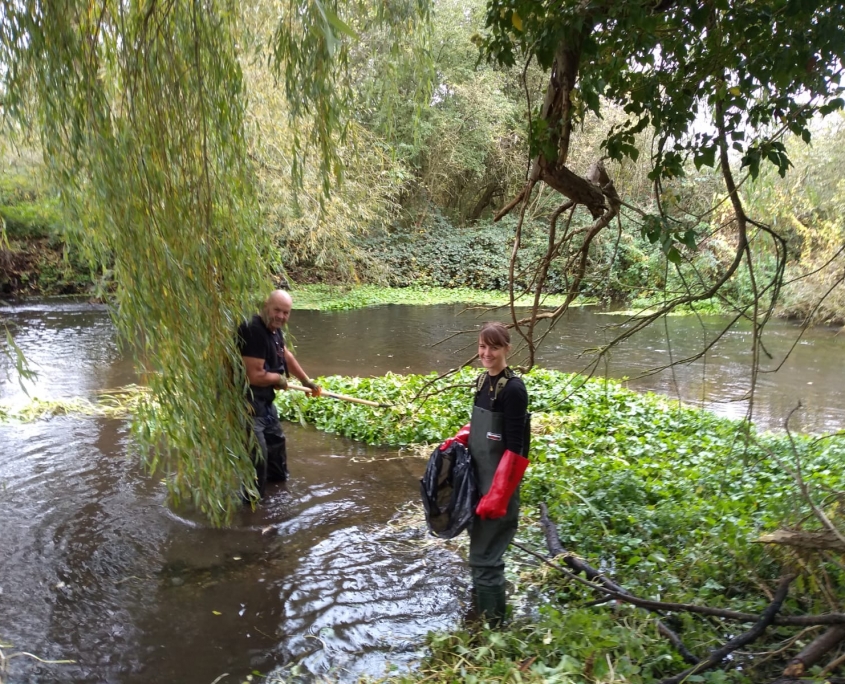
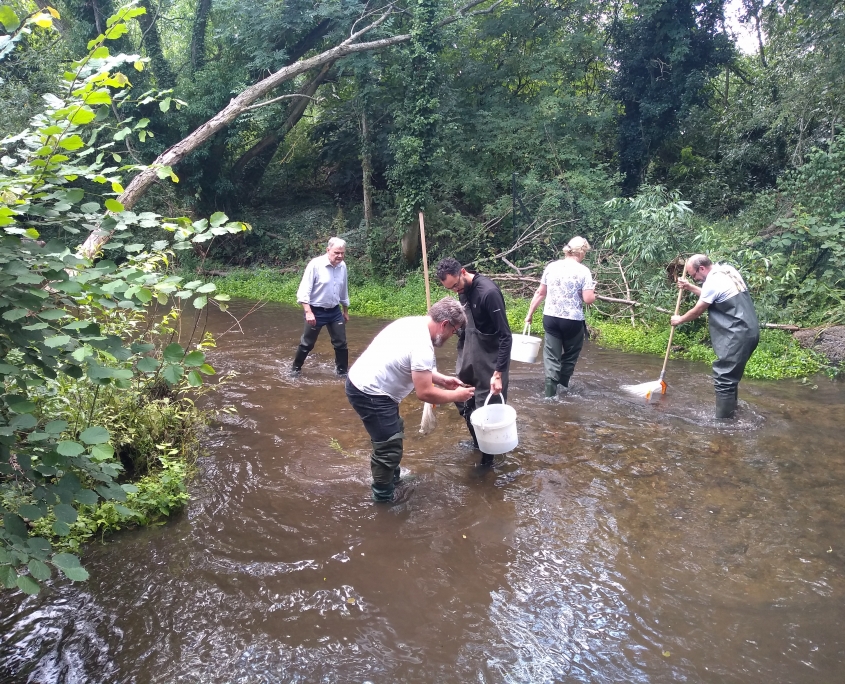
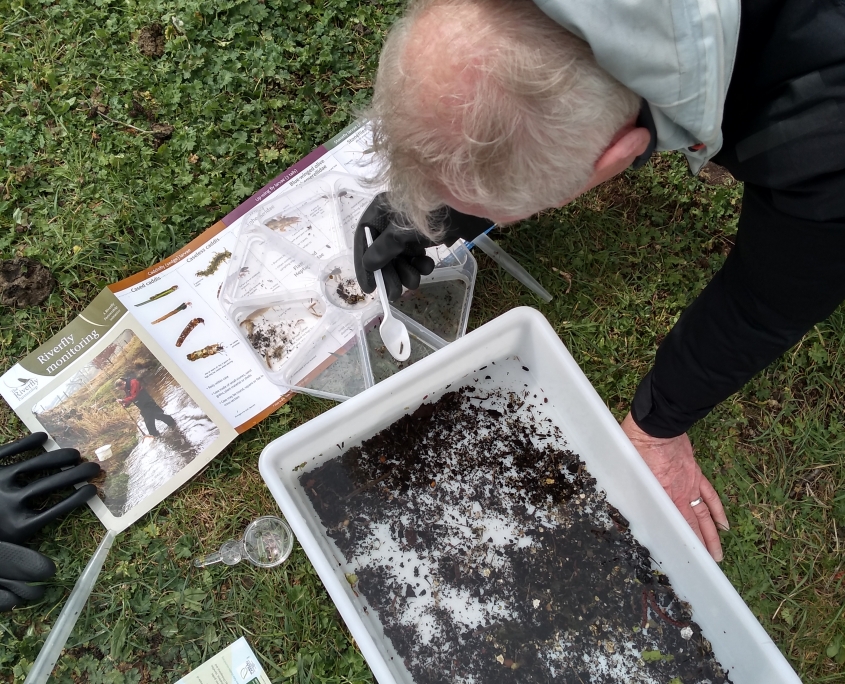
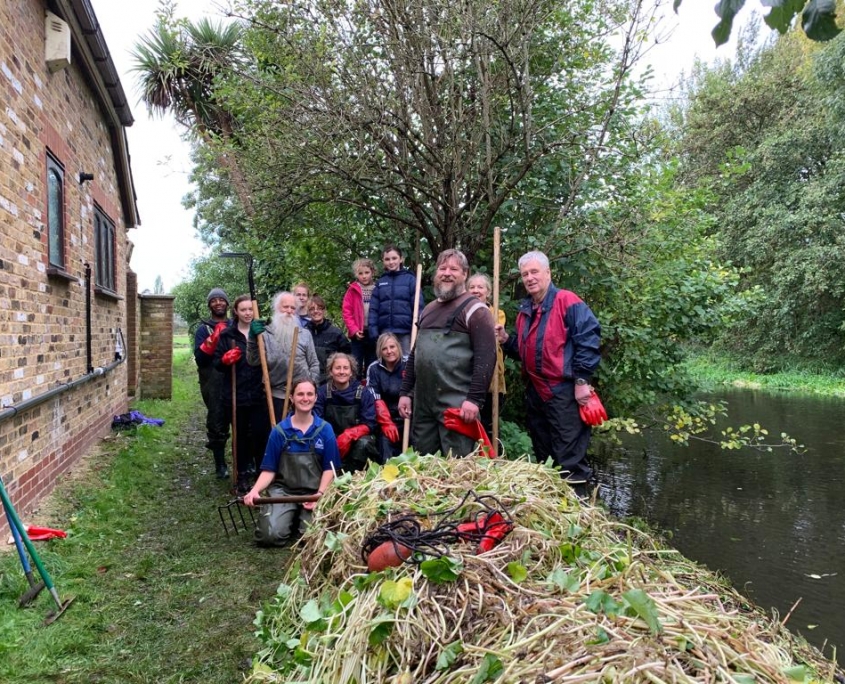
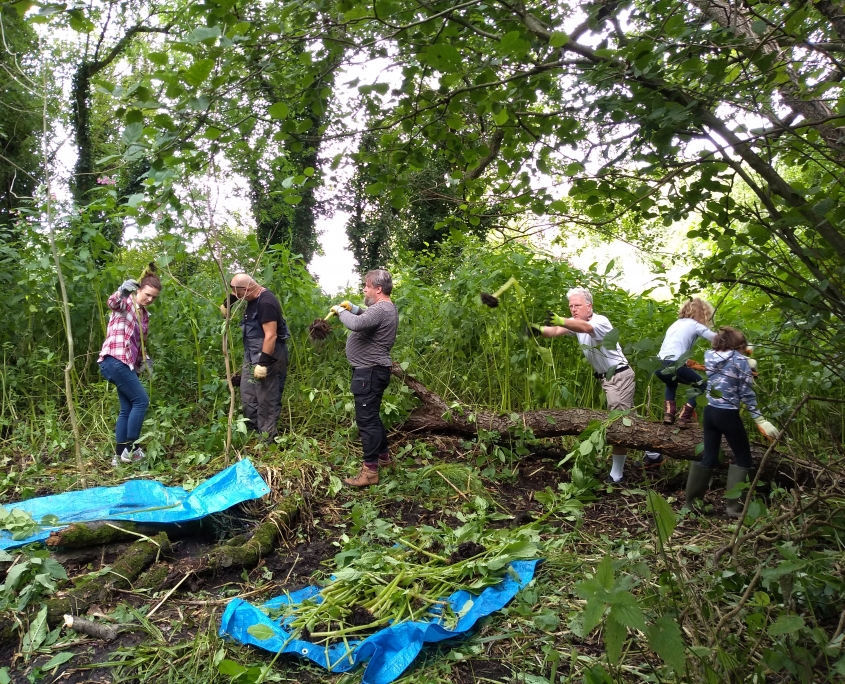
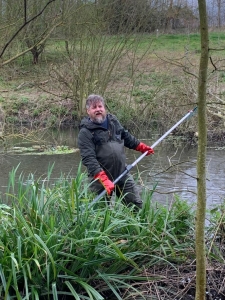


 Julia Dorans
Julia Dorans 